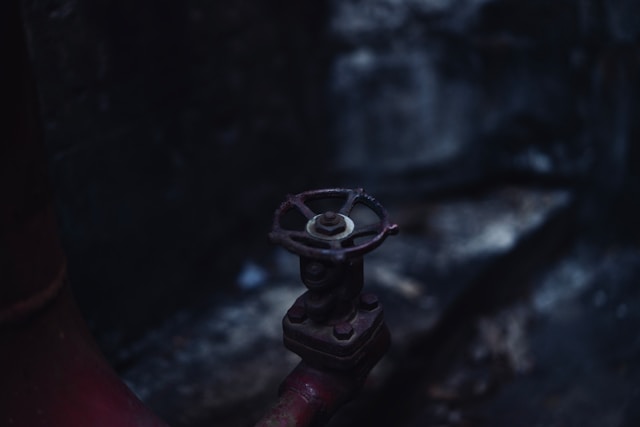Whether you have just bought a new home or are looking to resurface your driveway, it’s essential to understand the pros and cons of residential asphalt paving installation. Paving is a significant investment, and you’ll want to choose a lasting solution.
Asphalt paving requires regular maintenance
Regular maintenance on asphalt is an easy way to increase your asphalt surface life. Sealing the cover protects your asphalt from water damage. It prevents water from entering the cracks and helps your asphalt surface look good.
There are several ways to repair cracks in asphalt. These include sealing, crack filler, and hot sealant. Sealing is essential if your asphalt surface is used in areas where the weather is cold or hot. In addition, it can minimize the need for asphalt milling.
Cracks in asphalt allow water and debris to enter the surface. It causes the asphalt to wear and can lead to other problems. Regular maintenance is a way to avoid costly repairs.
In addition to contracting, cracks can harm a foundation. You might need to employ a specialist if you have a wider region with alligator cracks. The reason is that these cracks are a collection of fractures.
Moreover, blacktop driveways Elkhart IN, parking lots, playgrounds, and other places with lower traffic volumes than main roads frequently use blacktop surfaces. It is because, although practical, the combination of blacktop is less durable than paved on commercial highways and does not need to be because of the lower traffic volume. However, blacktop and asphalt have numerous benefits and may be tailored to meet the demands of the location where they are being installed.
Interlocking paving stones
Whether you are looking for a safe patio, driveway, or pathway, interlocking paving stones are the perfect solution. They offer a non-slip surface and come in various shapes and colors to match your home’s style.
Installing interlocking paving stones is relatively easy. However, it requires proper engineering training and simple steps to ensure a good job. Nevertheless, it is a fantastic method to improve the curb appeal of your property and may be an economical substitute for stamped concrete and asphalt.
An adequately installed interlocking driveway is a durable, low-maintenance option ideal for most weather conditions. It can withstand heavy loads and doesn’t show tire marks, shoe marks, or other blemishes on the surface.
Unlike stamped concrete, which fades in direct sunlight, interlocking paving stones have a surface that resists fading. It is because they contain a layer of sand that absorbs excess water.
This layer will prevent water from soaking through the joints, preventing erosion and weed growth. In addition, it provides an extra layer of grit for a more durable, non-slip surface.
Concrete is a better paving option
Choosing the appropriate paving material for your parking lot or driveway might take a lot of work. Both asphalt and concrete come with their own set of pros and cons. Concrete is more expensive to install and maintain. Still, a quality application will last a lifetime. asphalt, on the other hand, requires less maintenance and is not as susceptible to weather-induced damage. Moreover, concrete can be reused in other projects.
The best way to decide which is best for your needs is to get a free quote from a local paving contractor. Both asphalt and concrete need to be correctly installed—the more professional the installation, the more cost-effective the end product. Asphalt is a good choice for fast-track jobs, while concrete is best left to the pros. Concrete is also more durable and less susceptible to tree roots growing through the surface.
The best paving material for your budget will depend on your location and driveway size. Asphalt is suitable for residential and commercial projects, while concrete is better suited for roads and parking lots.
Permeable pavers
Unlike traditional paving materials, permeable pavers allow water to soak into the ground. As a result, they also act as a water harvesting system, which can help lower utility bills. These durable and environmentally-friendly paving solutions are available in hundreds of beautiful designs and styles.
Permeable pavers are used to build driveways, patios, walkways, retaining walls, enclosures, and more. They offer many advantages, including reduced water runoff, improved water quality, and reduced flooding. In addition, permeable pavers are eco-friendly and low-maintenance. These pavers are also lightweight, allowing them to be installed on almost any soil type.
Permeable pavers have wider joints than traditional pavers. These joints are filled with crushed aggregate, which allows water to flow through. It helps prevent cracks and other damage. In addition, permeable pavers provide a stable and smooth surface. They can be used on driveways, sidewalks, pool areas, patios, and commercial parking lots.
Permeable pavers are durable and resistant to freeze-thaw cycles. They are also deficient in maintenance, so they do not need to be replaced as often as traditional paving materials. They are also aesthetically pleasing, which helps increase the value of your property.

 Keeping Your Hearth in Top Shape: The Value of Routine Fireplace Repair
Keeping Your Hearth in Top Shape: The Value of Routine Fireplace Repair  Septic Systems: Maintenance Tips for Homeowners
Septic Systems: Maintenance Tips for Homeowners  Timeless Elegance: A Guide to Buying Your First Antique Shelf Clock
Timeless Elegance: A Guide to Buying Your First Antique Shelf Clock  Fostering Tranquility: Infusing Personal Well-Being into Home Renovation Ventures
Fostering Tranquility: Infusing Personal Well-Being into Home Renovation Ventures 


